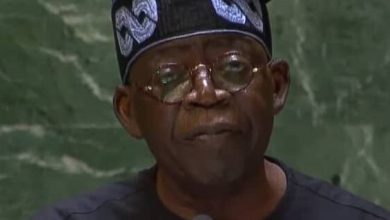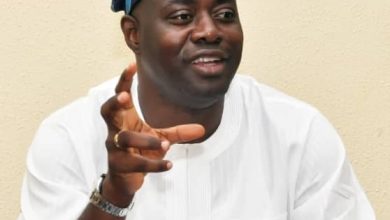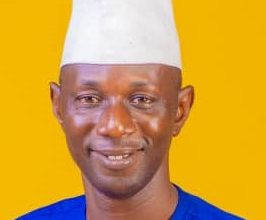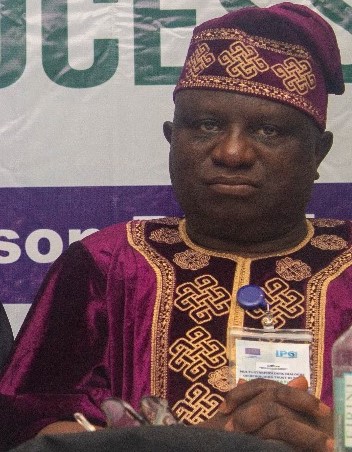
Nigerian Professor, Albert identifies recipe for trust in electoral process, elections
A Nigerian Professor of Peace and Conflict Studies and the pioneer Dean of the Faculty of Multidisciplinary Studies at the University of Ibadan, Isaac Olawale Albert has identified some key factors that can provide trust in the electoral process and elections in the country.
Penpushing reports that Albert identified these while delivering paper on Monday at a one-day multi-stakeholders dialogue on rebuilding trust in the electoral processes, institutions and elections, held in Lagos State.
The dialogue was objective of Component 4 (Support to media) of the European Union Support to Democratic Governance in Nigeria-Phase 2 (EUSDGN II) project, the implementation of which International Press Centre (IPC) leads.
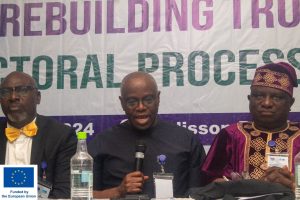
Penpushing further reports that he pointed out that without trust, democracy is a façade, adding that recent lessons from Africa (particularly the Sahel) show that Nigerians are getting increasingly frustrated, and time seems to be running out!
The member of National Standing Committee of Nigeria’s Tertiary Education Funds (TETFUND) on Research and Development said this include pre- election stage which involves candidate of political parties presenting their manifesto to the general public, before the general election.
Penpushing also reports that Albert stated that all persons qualified to vote are called upon to register themselves, and only those who are duly registered can vote, stressing that in this pre-stage, the commission announces the date of the election for the process to begin.
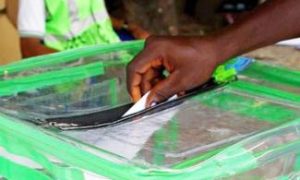
The guest lecturer added that at the primary’s stage, the aspirants seeking to run for a political office through a platform of a political party shall face both the parties’ screening and primary elections, and that the party members will elect one aspirant, each among others contesting for the same position or office through the same political party, and that the winners at this stage shall be nominated by the various political parties to compete for the general election.
Penpushing reports that he equally identified nominations as another stage which involves each electoral political party nominating a candidate who would be the forerunner of the election, and the candidate nominated must meet the basic qualification requirements as stipulated by the constitution, electoral act, and Independent National Electoral Commission (INEC’s) guidelines.
The Editor in Chief of the African Union’s African Journal on Terrorism and a Fellow of the Nigerian Academy of Letters identified campaign as another factor, explaining that this stage involves the electoral political parties and their nominated candidate campaigning actively for the support and votes of the general public.

Penpushing further reports that he noted that the Independent National Electoral Commission (INEC) usually schedules the campaigning periods, observing that political parties generally do it by promoting their various ideas and promises using multiple media platforms.
The Fellow, Institute of Chartered Mediators and Conciliators (ICMC) and Fellow of the Society Institute of Chartered Mediators and Conciliators (ICMC), equally spoke about accreditation, noting that the electoral regulations states that the method of voting shall be by the continuous accreditation and Voting Systems (CAVS) procedure.
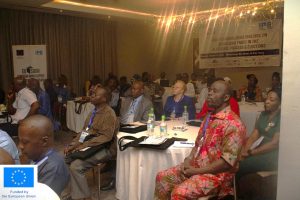
‘According to the procedural system, no person will be allowed to vote at any polling unit other than the persons whose names appear on the register. The accreditation process involves reading the permanent Voters’, he said
‘Card (PCV) and the authentication of the voter’s fingerprint. Producing Ballot Papers and other Polling Material- this election stage involves the Commission producing the ballot boxes, papers, and other materials to be used to conduct the election effectively. Candidates of all participating political parties are put on the ballot papers for various positions being contested’, Albert added.
‘Voting – voting days in Nigeria are usually during the weekends, especially Saturdays. Under the current electoral law, election to the office of the President and Vice President as well as National Assembly shall hold first, while election to the office of the Governor and Deputy Governor and State House of Assembly shall hold two (2) weeks after that’.
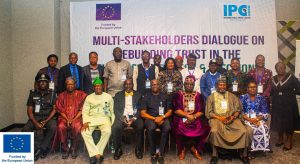
‘The polling officials appointed by INEC will be at the various units to conduct the election. The voters are allowed to cast their votes using the appropriate voter’s card after proper identification and accreditation’.
‘Collation or counting the votes– this is one of the crucial stages in the election process. In this stage, after successful voting, the ballots are counted, tabulated, and summarized at every polling center by the INEC Officials’.
‘Votes are counted differently for each candidate at every polling unit. The candidate who wins the majority of the votes after a scrutinized counting will be declared the winner. The failure to complete the collation and transmission of results in a quick, transparent, and accurate manner can jeopardize and affect the entire process of the election’.
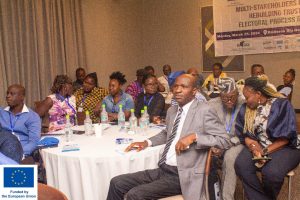
‘Result Declaration– this is the final stage of an election process. After the successful counting of the votes cast, the candidate and party with the highest votes will be officially announced by INEC officials. The announcement of the result is a mandatory requirement of the electoral process. Upon the declaration of the result, the winners shall be presented with the Certificate of Return by the presiding or returning officers’.
Penpushing also reports that Albert, a full member of the Chatham House London (113597) and a federal delegate to the 2014, emphasised that there is no alternative to democracy, hence elections are important in the process
FOOTNOTE: You want to share story with us? You want to advertise with us? You need publicity for product, or service, or event? Contact us on WhatsApp +2348073463653 or email penpushing@yahoo.com



